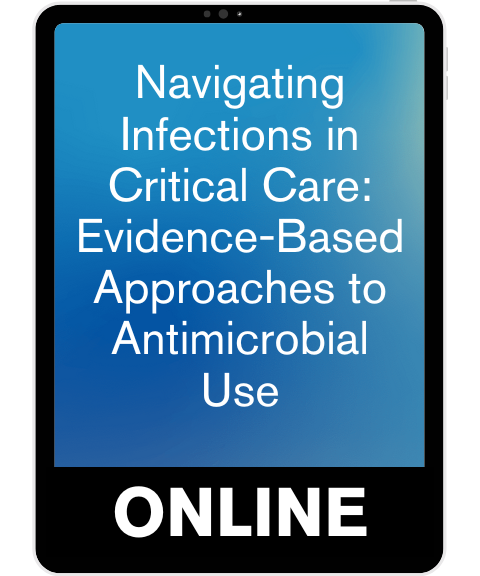




Gain knowledge to effectively manage complex infections, especially those caused by multidrug-resistant gram-positive, gram-negative, and anaerobic pathogens.
Course Objectives:
Antimicrobial Stewardship in the ICU
Define the concept of antimicrobial stewardship and its importance in critical care
Discuss strategies to promote appropriate antimicrobial use, including de-escalation, duration optimization, and avoiding unnecessary broad-spectrum agents
Explore successful stewardship interventions
Navigating Multidrug-Resistant Pathogens
Develop treatment algorithms for specific resistant pathogens
Address challenges related to antibiotic allergies and adverse effects
Clinical Decision-Making in Empiric Antibiotic Therapy
Evaluate patient-specific factors (e.g., severity of illness, risk factors) influencing empiric antibiotic selection
Construct evidence-based empiric regimens for suspected infections based on site of infection
Explore the role of diagnostic tests in refining therapy
Addressing your knowledge gaps can help improve patient outcomes by enabling application of up-to-date strategies for diagnosis, treatment, and prevention of these infections, especially in critical care settings where the consequences of treatment failure are significant.
Earn up to 5.5 accredited continuing education (ACE) credits and maintenance of certification points.
Continuing Education
ACE release date: December 1, 2024
SCCM Product Code: INFECTION24ON
ACE expiration date: December 1, 2027
Estimated time for activity completion: 5.5 hours
Price: $125.00 (not including membership discounts)